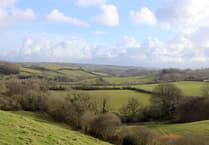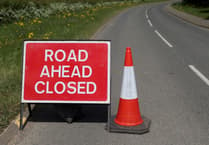Students and staff at St Nicolas C of E VA School, Downderry, were delighted to hear they continue to be a ‘Good’ school, following a recent Ofsted inspection.
The examiners added: “There is enough evidence of improved performance to suggest that the school could be judged outstanding if we were to carry out a graded (section 5) inspection now.”
Within their report the school was desicurbed as foollows: “Pupils have a love of learning at this school. They experience broad and rich opportunities to develop their own individual character. Pupils proudly give many examples of how their experiences bring to life the school’s motto, ‘Where learning becomes an adventure’.
“These experiences are exceptional and make the most of the school’s unique location.
“Pupils and parents value the opportunities to explore, take risks and be adventurous. These activities help to prepare them for future life.
“The school values underpin learning. Pupils have a strong moral code. They learn how to be good citizens through their good works within the local and global community. This develops a strong sense of service to those around them.
“Pupils are very respectful of one another. They know the school rules and are clear about any consequences if they break them. However, these are rarely needed because pupils almost always meet the very high expectations of teachers. Pupils feel that everyone is treated equally and with consistency. They understand that everyone is different and that sometimes they need different support.”
It continued: “ Leaders ensure the curriculum is embedded securely and consistently across the school. Leaders’ vision for outdoor learning is integral to the unique offer at the school. This is not a bolt-on to the curriculum. It is intentionally and carefully woven into learning across the different curriculum subjects. Leaders have the same ambition for all pupils, including pupils with special educational needs and/or disabilities. Teaching is adapted where necessary so that all pupils can achieve their individual potential.
“Leaders have identified the essential knowledge they want pupils to learn. This is well sequenced, which enables teaching to revisit knowledge covered previously and then introduce new learning. In geography, teachers skilfully build pupils’ understanding of location through well-constructed activities. Children in the early years start by learning about their own locality, which underpins their later learning about the UK, Europe and the wider world. Over their time at the school, pupils build a ‘passport’ of ‘destinations’ they have learned about. They enjoy this and have a very secure understanding of location as a result.
“Teaching ensures that the work given to pupils is of a consistently high quality. In science, pupils learn to make links between what they are being taught. This helps them to understand more complex ideas. In mathematics, pupils develop strong fluency with numbers. They are then able to apply this to reasoning and problem-solving.
“The importance that leaders place on reading permeates the school. Pupils love to read. They appreciate the wide range of texts they can choose from. The outside reading pod is popular with pupils and broadens their reading experiences with magazine subscriptions as well as novels and picture books. Children in the early years learn to read well. Nursery children enjoy exploring sounds and rhymes through stories and play. In Reception, children begin to learn phonics from the start. They quickly learn to segment words and blend sounds accurately. This prepares them well for becoming fluent readers in key stage 1. The few pupils who fall behind are quickly identified and the precise support they receive helps them to catch up quickly.
“Teachers speak highly of the support they receive from leaders and the trust. They develop good subject knowledge as a result of effective professional development. Subject leadership is used well to evaluate the impact of the curriculum on pupils’ learning, and changes or improvements are made where necessary. Teachers feel involved in these discussions. They are proud to work at the school and staff morale is high.”
It added: “The arrangements for safeguarding are effective. Leaders instil in staff that, despite this being a small village school, ‘it could happen here’. Staff are vigilant and knowledgeable. They are clear about the procedures for recording and reporting any concerns. Regular training makes sure that they know the signs to look out for. Leaders work with a range of external agencies to get the right help for pupils at the right time.
“Pupils have a good knowledge of how to keep themselves safe. They regularly learn about online safety. Relationships between staff and pupils are highly positive. As a result, pupils feel confident about telling any adult if they have a worry.”




